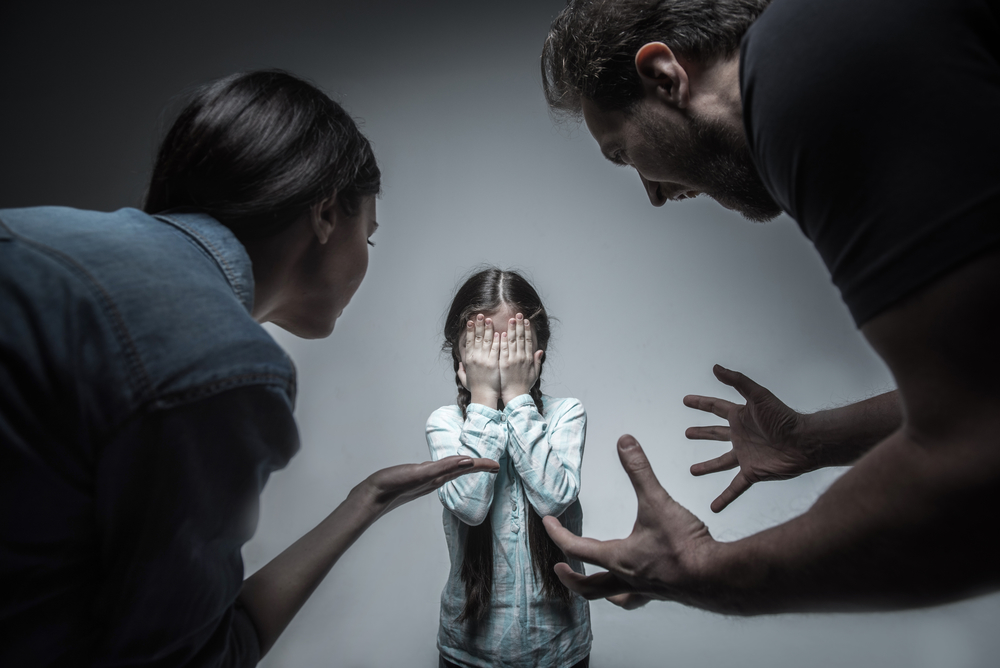Although I left home at the age of 22, developed a successful career, and supported myself financially, until I was 31 I didn’t feel like a grown-up.
Even at 31, when it hit me that I am actually a grown-up, in many ways I still acted like a child.
Sometimes I’m ashamed to remember how at the age of 39, at a leadership course I attended, I was sitting and crying during the entire course of dinner, after experiencing a failure at one of the tasks, while people came over to comfort me.
In retrospect I can admit that this was the exact purpose of my tears – to win sympathy. And it definitely worked. Even the program leader had sat me on her knees and comforted me.
(It wasn’t the first time I acted this way, but it was certainly the last.)
Such behavior, even if it gets us the attention and sympathy we are after, comes at a price. To begin with, it was only a task in a course. And though it’s painful to fail, if I hadn’t made such a fuss about it, the pain would have subsided much faster. Besides, not only is being the helpless and whiny girl not such an honor, but it also affects self-esteem – because if you behave like someone who’s weak and small, you feel weak and small.
By the way, I’m not talking about being childish in terms of fooling around and laughing. This is something I do to this day and enjoy every moment of it.
I’m talking about being the “child” who expects others to take care of their feelings or to decide what’s right for them. Or the “child” who relies on their parents to manage their finances, track their bank account, or schedule their doctor’s appointments.
Such behavior is an outcome of what I call “clinging to childhood”. By that I refer to most grown-up’s attempts to find someone who will make up for the unconditional love, acceptance, and support they missed in childhood.
Those who didn’t receive a loving attitude from their parents tend to believe that those who did do not suffer from emotional deprivation, but this is not the truth.
I, for example, had an amazing mother whose enormous love I never doubted. But that doesn’t mean that all my emotional needs have been met, because within my mother lived two entities: the whole and amazing person alongside a little girl who was still driven by the pain of her past. When that girl would wake up, she was the center of attention, not my needs as a child. Also, despite her love, my mother would often take things out of proportion, judge me from her point of view, and in some aspects she wasn’t the best role model.
Over time I have come to realize that the lack most adults feel is not necessarily of unconditional love and support but the lack of a parental figure that enjoys inner stability – a rare thing to find.
Many try to make up for what they missed in childhood through romantic relationships, the place that seems ideal for that. But since relationships are symmetrical in nature, a person who’s emotionally and mentally stable won’t be attracted to someone who’s the opposite of that. (Although sometimes it might seem so on the surface.)
Thus, often two wounded “children” who are still driven by the pain of the past find themselves in a relationship. Each expects the other to make up for what they missed, understand them, and support them emotionally, and each finds themselves disappointed and resentful towards the other for failing to do so in the “right way”.
If someone does take the “adult” position in a relationship and constantly supports the other, it will necessarily be someone who’s haunted by feelings of worthlessness and needs to take another person under their wings to feel powerful.
Eventually, no one can make us feel whole, no matter how hard they try. The fantasy of “the perfect person who will make me feel whole and soothe all my pains” can only exist in the early stages of a romantic relationship, or when we turn someone into a guru and treat them as superhuman.
The understanding that there’s no one who can fill the hole inside us can be frightening. But the good news is that we don’t actually need anyone else in order to feel whole and complete within ourselves!
Because although it might seem paradoxical, it’s only when we let go of the idea that in order to heal the pain of the past we need someone to make up for what we have missed, that the void inside us suddenly disappears.
The Ideas That Keep You Stuck in This Situation
At the end of the day a beautiful statement that sounds right is not enough. We all love them, repeat them to others, but rarely do we apply them in our lives.
Thus, in order to help you let go of the incomplete child that lives within you and become whole, I will present the main objections that I hear time and time again from my clients when I point out the reason to their misery, and address them.
“I’ll always feel like a child with my parents”
When I want to determine whether something is natural, I examine nature – animals, children, and tribal societies that haven’t been affected by modern society.
In this context, if you look at animals or youngsters in tribal societies, you will notice that they are considered adults at a relatively young age and become independent.
Also, in tribal societies it goes without saying that in time the roles switch and the younger members take care of the elderly (Something that grown-up “children” often complain about and perceive as unnatural.)
“A parent is not supposed to behave this way”
It’s true that numerous children experience huge pain at the hands of their parents and it’s definitely something that needs to be changed.
However, when expressing such a statement we refer to an imaginary ideal parent-figure, not to our real parents.
Behind the word “supposed” lies the mistaken assumption that your parents could have acted differently in the past or that they can change their ways now.
In reality, though they are parents and ideally supposed to act in a certain way, your parents have their issues and their level of consciousness, and according to that they are capable of certain things and not others.
“If I can change, so can he!”
Not necessarily. Your parents, siblings, or anyone else cannot necessarily do or understand what you can, the same way not everyone can achieve the same results in sports or school.
When you argue with the facts, you suffer.
“I also have an impact on the relationship, but she has to be the one to make the first move because she is the parent”
Many adults keep complaining about their relationships with their parents while insisting that the parent should make the first move in creating a change in the relationship.
“Though you are her daughter, you are two adults, not a parent and a child,” I tell my clients, “and since you are the more conscious person, start taking responsibility for your part in the relationship, because she can’t. I can assure you, however, that she’ll respond to every move you make.”
“My parents didn’t teach me basic life skills”
One of the main arguments of grown-up “children” against their parents is that if their parents would have taught them certain life skills, better prepared them for life, or pushed them harder, they could have been in a completely different place.
While theoretically this may be true, in fact there are several problems with such claims:
a. Your parents raised you upon their best judgment (which obviously wasn’t that great sometimes) and couldn’t teach you what they didn’t know.
b. In many aspects, anyway, your parents better not be your role models.
c. Many people have succeeded in life despite lack of parental guidance, while others, who had all the means to succeed, did not.
d. Today, when all the information is available online, no one can say they were totally unaware of certain possibilities because their parents didn’t bring them to their attention.
“It’s sad that I’ll never have a real mom”
The sadness and pain can only last as long as you are feeling sorry for yourself for what you don’t have or didn’t have as a child, or about what you blindly insist everyone but you has (i.e. much better parents than your own).
You do (or did) have real parents. They may not be the ideal parents you wish for, but they are still parents. And if you’d willing to accept them as they are, you might get the opportunity to enjoy them while they’re still here, instead of regretting what you missed later.
“But I can’t accept the fact that others have what I don’t”
Let’s say it’s true that most people have the kind of parents you dream of. Still, whether you accept the situation or not – it is what it is. Fighting what cannot be changed is the greatest misery, not the situation itself.
“I need to be emotionally stronger to let go of the expectation to receive what I missed as a child”
This is what one of my clients told me when I suggested that her expectations of her father were unrealistic.
“And how will you get emotionally stronger if you hold on to what most influences your current inner state?” I asked her.
“So, should I just ignore this???”
There’s no need to ignore the situation, just to accept it as it is.
By that I mean that you have to accept the fact that your parents are not going to be who you want them to be. Obviously, if they still hurt you, you should learn how to set boundaries with them, and if needed, to distance yourself from the situation. (My recommendation is not to cut ties with parents, siblings, or children, unless it’s absolutely necessary.)
“But it’s hard to be a grown-up”
This statement is no more than a story that has nothing to do with reality. You are an adult whether you accept it mentally or not. The real difficulty is the immense suffering that clinging to childhood creates, not a mental acceptance of a fact.
It’s true that life often brings us challenges, yet any challenge you face will be much harder to cope with as long as you perceive yourself as a helpless child.
And if You Are Still Not Convinced…
If you are still not convinced it’s worth letting go of clinging to childhood, perhaps the following will convince you:
1. Some people develop anxiety or eating disorders because unconsciously they are trying to force their parents to treat them as small children and give them the care and attention they desire. But even when they get the treatment they always dreamed of, it doesn’t fill the hole within them.
2. As long as we expect our parents to change or condemn them for who they were in the past, we harbor resentment and grudges—destructive emotions that have a far-reaching influence on our level of happiness, the people and events we attract into our lives, and our health.
3. Since relationships are symmetrical in nature, as long as you are filled with emotional pain you will attract into your life someone with a similar level of pain (although they might look stable and strong on the surface), which is not a recipe for a happy ending.
4. If you are still the “child” who carries the poison of resentment, your children will inevitably be affected, since children are primarily affected by their parents’ inner state, not by their overt behavior.
Other than that, you will likely find yourself reacting like a child when they challenge you and fail to set proper boundaries with them.
Your emotional burden might as well drive offensive behavior, cause neglect, or expose your children to destructive behavior.
5. The “child” always feels lonely, no matter how many people are around them. Because it’s not enough for them to have company, they need to always be understood, receive special treatment, and have people consider their feelings and needs at all times.
For all these reasons, I invite you to give up the unrealistic expectation that you will one day find someone who will make everything right for you, simply because it’s not going to happen.
And since I’ve already taken this step, I can promise you that it will miraculously transform the quality of your life 🙂




